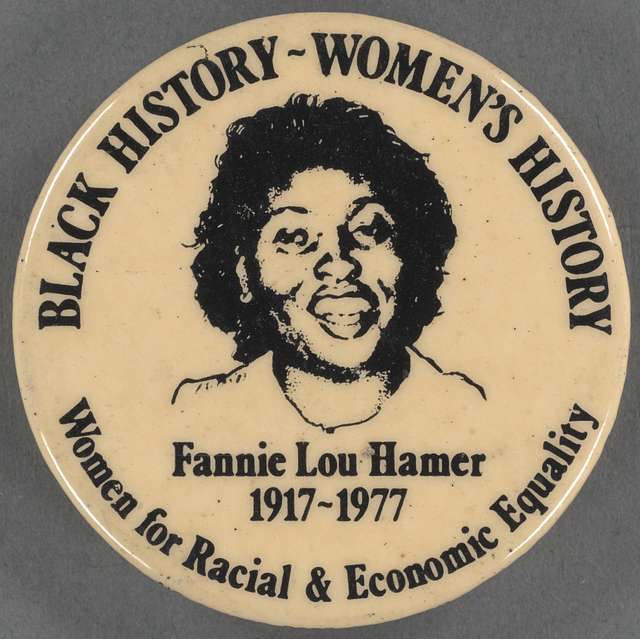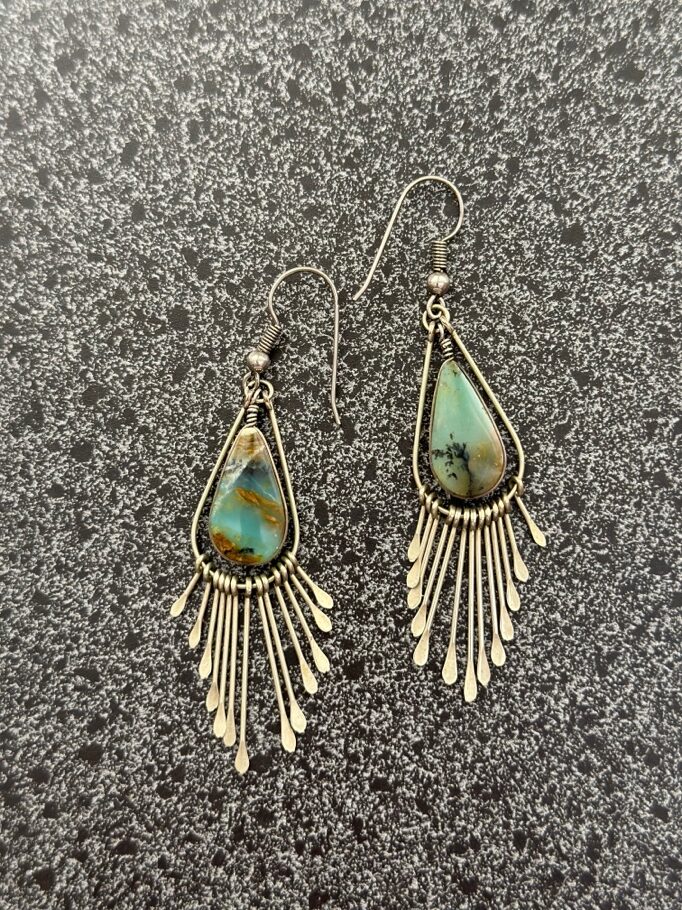By Janet L. Boyd

Recently, while sorting through 27 years of accumulated detritus in my closet, I found a piece of gray textured cardstock that had been cut into a small business card. Written on it in blue ink were a name and address – Billie Jean Young, Jackson, Mississippi. It wasn’t my handwriting. Residue from tape stained a small square on the surface, and there were multiple staple holes on the edge as if it had been attached to other items at some point in the past.
The card was resting in a forgotten woven rag basket along with 10 years of dust-covered beach badges from vacations on New Jersey’s Long Beach Island, an assortment of feminist political buttons, a check for $1,000 written to me on an inactive bank account by my daughter when she was 8 years old, and a pile of cheap jewelry pieces that my mother had given me over the years (not as gifts, per se, but because she didn’t want them anymore, yet couldn’t throw them away). All treasures, for one reason or another.
Clearly, the person named on this card had once been important to me, but I couldn’t remember why. After wracking my brain overnight to figure out who she was —I’ve never been to Mississippi, I don’t know anyone from there —I gained a glimmer of how I knew Billie Jean Young and why I had saved the card. I thought it was from my time at the University of Kentucky. 1986? Maybe 1987. As a women’s studies student member of the planning committee for the Women Writers Conference that was hosted annually by the university, I helped shepherd our featured guest writers around during the three-day event. I thought Young might have been a guest during one of the years I served on the committee.

A quick Google search told me I was right. Ms. Young rescued the story of an African American activist from the ashes of civil rights history. She wrote a play called Fannie Lou Hamer: This Little Light and trav
eled the world performing the one-woman show about Hamer. At that time in the late 1980s, everyone knew the name of Rosa Parks but few had heard of Fannie Lou Hamer, despite her roles as a voting and women’s rights activist, vice-chair of the Freedom Democratic Party, organizer of Mississippi‘s Freedom Summer, and co-founder of the National Women’s Political Caucus. Young was at the Women Writers Conference to perform her show, and I had been assigned as her caretaker.
Spending so much time with Young, while driving and walking her around campus, was a privilege and a revelation for me. Just the presence of an academic women’s studies program was progressive for the university at that time, but we were studying mostly white women. I knew nothing about Hamer’s work. Or that of Young, who had been the first African American to graduate from Judson College and among the first African Americans to earn a law degree from Samford University in 1979. But despite her accomplishments, and even though I still occasionally wear the malachite earrings she gave me as a thank-you gift, I had forgotten Billie Jean Young’s name over the years.
I never forgot Fannie Lou Hamer, though. That is the power of writing, the power of telling women’s stories. I might forget who wrote the piece, but not what it’s about. Hamer’s story, as written and performed by Young, stuck with me. I was sorry to discover that Young died in 2021 at age 73. The world lost a valuable writing voice with her passing. But I’m never going to forget her name or her connection to Fannie Lou Hamer again. That handwritten card, now with Hamer’s name on the back, lies in a fancy little bag, along with those malachite earrings, in my jewelry box.
 Women Who Write | A Place, A Space, A Voice | Louisville, Kentucky
Women Who Write | A Place, A Space, A Voice | Louisville, Kentucky